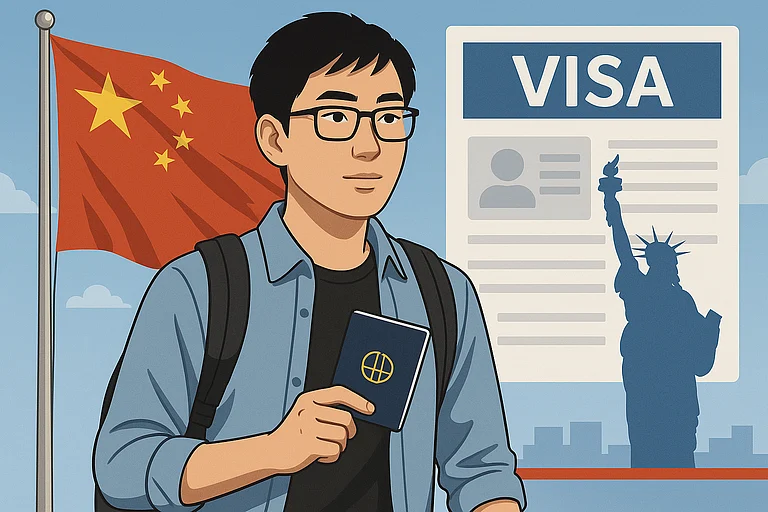
Summary of this article
The first lawsuit against Donald Trump’s $100,000 H-1B visa fee rule has been filed in San Francisco by unions, educators, and religious groups. The plaintiffs argue the fee is unconstitutional, unlawful, and disruptive to healthcare, education, and technology industries, while the White House insists it will protect American workers.
US President Donald Trump’s attempt to impose a $100,000 fee on new H-1B visa applications has been hit with its first legal challenge. A coalition of unions, healthcare providers, professors, and religious organisations filed a federal lawsuit in San Francisco on Friday, arguing that the new order is unconstitutional, unlawful, and threatens to upend the US workforce.
Trump’s September 19 proclamation mandated that employers sponsoring foreign workers under the H-1B program pay a one-time fee of $100,000, a sharp increase from the existing charges of $2,000 to $5,000. The order was to take effect within 36 hours, leaving employers scrambling and many workers rushing back to the US to avoid being locked out.
The lawsuit, filed by groups including the United Auto Workers, the American Association of University Professors, the Democracy Forward Foundation and the Justice Action Center, calls the fee “arbitrary” and “Trump’s latest anti-immigration power grab.” They have argued the president lacks the authority to unilaterally levy such a charge, noting that only Congress controls taxation and spending.
“The Constitution assigns the ‘power of the purse’ to Congress,” the suit says, adding that Trump had “displaced a complex, Congressionally specified system” for issuing H-1Bs. The plaintiffs have further warned of ‘devastating fallout’ if the order stands: “Hospitals will lose medical staff, churches will lose pastors, classrooms will lose teachers, and industries across the country risk losing key innovators.”
How does the White House defend its new rule?
Those in favour of the new rule say it effectively creates a “pay to play” regime, granting exemptions only for those who can show “national interest” - a condition opponents believe opens the door to selective enforcement and corruption.
However, Skye Perryman, CEO of Democracy Forward, said the “exorbitant fee” would stifle innovation and deny the US the best international talent.
The White House has defended the move, insisting it is within the president’s authority. A spokesperson said the order aims to curb abuse of the system, which they claim has been used to “replace American workers with lower-paid foreign labour.”
The H-1B visa program, capped at 65,000 regular visas plus 20,000 for advanced degree holders each year, is a lifeline for industries struggling with skill shortages. Tech companies such as Amazon, Microsoft, Apple, and Google are among the most prominent sponsors. India and China dominate the program, with Indian nationals alone making up over 70 per cent of H-1B approvals last year.
According to media reports, many experts say the case could set an important precedent. A ruling against Trump would reaffirm limits on executive power in reshaping immigration laws. If upheld, however, the $100,000 fee could dramatically reshape the high-skilled immigration system overnight.
It is important to note that, for now, the order applies only to new applications filed after September 21. However, the immediate uncertainties created because of the sudden passing of new H-1B Visa fee rule has already rattled many universities, students, healthcare providers, tech companies, etc., that depend on global talent pipelines.












